|
D6 joins cultural and civil society organisations around the world by signing Action for Hope’s petition calling for a stop to the humanitarian catastrophe unfolding in Gaza. Read more here.
0 Comments
Delicate Shuttle, Henna Asikainen, 2018, Image Credit: Arto Polus Issue 26, Art Licks: RADICAL GESTURES (2021) City Column: Newcastle In our city centre studio, with its spacious communal kitchen we invite artists to undertake research residencies to explore ideas, make work, make food, host critical friends and new collaborators, and to test out ideas with small groups of people. We have no expectation they produce public facing work during this first residency. From here, and through local and international partnerships, we develop sustained relationships interweaving their proposals and practice into the development of our programme. D6 has been working with Finish artist Henna Asikainen since 2016. This ongoing artist-producer relationship has evolved through a research residency, commissions and events. It has facilitated a deep engagement between artist, producer and a broad yet transient community of participants. Henna’s principal interests are the questions surrounding landscape and climate justice and the human relationship with nature, exploring the complex social and ecological issues that emerge from this relationship. Forage, Henna Asikainen, 2017, Image Credit: Arto Polus Forage and Delicate Shuttle (2017 and 2018) were participatory commissions with migrant citizens including refugees and individuals seeking asylum living in Newcastle and Gateshead, which considered what it meant to belong to a place when displaced from home. By walking through the most ‘English’ of our landscapes at National Trust and industrial heritage sites across Northumberland and Tyne and Wear, stories old and new were interwoven into new experiences for participants, forming the basis of a series of public artworks and interventions using foraged plants. Here Henna coined the idea of ‘radical hospitality’, shifting the balance of power from the artist-producer to the participant, and moving from inclusion towards equitable engagement through co-hospitality and the creation of shared spaces. Housesteads Fort, National Trust At a local level D6 is partnering with the National Trust, as they engage in a rigorous review of their own portfolio relating to the nuanced and deep colonial connections that form the foundation of the heritage sites and landscapes they conserve. During 2021-22 Henna takes up a D6 residency with the National Trust with an extended proposal which counters the view of rural England in which Hadrian's Wall sits as a largely white and homogeneous English idyll, instead presenting the wall as a product of colonisation and immigration, now woven into our everyday lives through flora introduced to the Northern landscape by the migrant population that built and lived along the Wall. DIFFICULT CONVERSATIONS Born of Brexit, Windrush and a wider hostile political discourse which exploits our colonial heritage for nationalist narratives, Contested Desires (2018 - 2022) considers the impact of European Colonialism on culture today. With a focus on transnational exchange and learning, our partners include a heritage consultancy based in Rome and artist-led organisations including LAC, a residency space and gallery in Lagos, Portugal, La Bonne, a femininst Cultural Centre in Barcelona, Xarkis, a nomadic arts festival across Cyprus and Fresh Milk, a residency space in St George, Barbados. Supported by the Creative Europe programme of the European Union, Contested Desires’ partners and artists shape a conversation between the Global North and the Global South and between the colonised and the coloniser. Through research, workshops, residencies and exhibitions we consider the power play between and within nations and the often divisive discourse that leads to fearmongering, discrimination and exclusion. Contested Desires includes deep explorations of our colonial heritage and culture with 3 online capacity building programmes over the past year: ‘Culture versus Heritage’, ‘Crafting the Nation State’ and ‘Gender and Heritage’. Working with artists, academics and cultural professionals it brings international perspectives to national dialogues around history, migration, diversity and racism, providing the space for visiting artists to ask sometimes difficult questions. Contested Desires comes to the North East in October 2021 with a conference that views the cultural legacy of our shared colonial histories through a UK lens, and in June 2022 at National Trust sites, we welcome 3 international artists in residence Marcio Carvalho (PT), Monica Rikic (ES) and Dimitris Chimonas (CY). Dearly Beloved, Akeelah Bertram, 2020, Image Credit: Jorge Pereira Akeelah Bertram is one of the UK artists commissioned by D6 to take part in Contested Desires. Dearly Beloved, (March 2020) was developed during her residency with our partner LAC in Lagos Portugal in early 2020. It is a work about memory - about who we remember and how we remember. Here, in the weighty shadow of the statue of Henry the Navigator, Portugal’s 15th century colonizer, and next to the market that auctioned newly arrived slaves, the ephemeral play of light across heat-formed acrylic shapes presented a memorial to the nameless whose desperate passage across the square remains unmarked. LANGUAGE, TENSIONS AND VULNERABILITY Asking difficult questions helps us to unpick the threads linking the past to the present with a renewed clarity. Artists produce by doing, often through challenging intransigent perspectives, yet the value of holistic artistic practice as research, can be overlooked or not considered ’work’. For D6 research and process are held in equal value to the production of new artwork, and it is a journey we travel together. stickyweeds, Nicola Singh, 2019, Image credit: Sarah Boutell Nicola Singh invites the conversation in through her practice. During her research residency at D6 in 2019 she shared her lived experience of race and familial migration through improvised performance for an invited audience of arts professionals. Her intention was to invigorate a local conversation about the responsibilities of the sector to explore its relationship to race and racism. Nicola uses automatic and durational writing, drawing, movement and improvisation in her performance practice, particularly using improvisation to connect her and her audience into an honest exchange around complex themes. Selected as one of the 9 artists for Contested Desires, Nicola will be in residence with our partner La Bonne, in Barcelona in early 2022. FROM THE LOCAL TO INTERNATIONAL AND BACK AGAIN Over the lockdown year we have had time to focus on our Newcastle based activity, and have been busy recycling and repurposing a new studio for visiting artists, with a focus on artists who have arrived in our region seeking asylum. Sanctuary and Culture is a new programme strand developed through an ongoing relationship with the West End Refugee Service (WERS) and meeting artists and creative professionals experiencing the sharp end of the immirgation system here in the North East of England. Following a WERS volunteering programme Sadia Sikander, an artist from Pakistan now living in Newcastle joined us in virtual residency producing a new body of work which was digitised and recently presented to an online audience. With the creative ingenuity of an extraordinary voluntary effort from artists, refugees and asylum seekers we now have 2 new studios to accommodate our expanded programme of research residencies, and a communal space to invite others into the conversations through the preparation and sharing of food. Nasher, MAI -Montréal Arts Interculturels, Dima Karout, 2014 The first research resident to use our new space is Dima Karout, a Syrian artist now living in London. Dima’s work reflects her powerful encounters with artworks in museums and public spaces during her travels to cities since 2005, and the possibilities that art offers in understanding the complexity of personal identity, conflicts and loss. Her practice reflects the evolution of belonging, of identity beyond borders, using metaphors of home, migration, displacement and the relation between people and places. With the support of Northern Print Studio, Dima will produce a series of prints for Territoires d'impressions in CIVA in Brussels in June.
RESEARCH AS PRACTICE: COMPLEXITY, NUANCE AND INTERSECTIONALITY To aspire to an equitable, sustainable and high quality practice we need to regularly pause and reflect: to acknowledge complexity, nuance and intersectionality and institutional (or prevailing) cultural bias: to review who is part of the conversation and who is missing and to embrace elements of risk as a necessary part of practice. Alongside writer Degna Stone, whose reflections captured ‘The Need for Radical Change’, the ‘Need for Radical Common Sense’ and ‘The Need For Radical Understanding’ in Contested Desires, and artist and digital curator Dominic Smith who regularly (and patiently) supports artists’ digital presence, the artists above make up our newly established Artist Associate Group. Initially for a period of 2 years, the artists here will reflect on our organisational practice, reviewing the balance and tension between how we position ourselves, artists and others participating in these processes to best enable and encourage the work of artists, whose practice is research-led. Our programme is co-produced with artists and partners, with relationships sustained over long periods of time. In a cultural field shaped by national policies and political agendas, we are too often complicit in a drive towards more and competitive growth: doing more in less time, for more people and multiplied across more geographies. As we start to emerge from the ravages of a global pandemic, with an acute awareness of the climate emergency ahead, doing things slowly, deeply and more meaningfully is a conscious approach that D6 is taking. We need to be kinder to our people and our planet, and we invite you to journey with us. We are all part of global conversations, we just don't always know it. Our programmes have always tried to unite common issues and concerns. The idea of island culture is interesting not necessarily in terms of an island surrounded by water but considering geographical distance from the capital where you can feel that you're not part of the conversations happening there. We work with artists on projects that look at connecting neighbourhoods on a very local level, but connecting internationally too, creating tools for empowerment and for having a voice. Many of the communities we work with in the north east are islands, far away from the regional capital, from where the decisions are made. Acknowledging that you are separated from the power base of decision making is something that interests us.
D6 has been working with the artist Henna Asikainen since 2016. This ongoing artist-producer relationship has evolved through a research residency, commissions, events and deep engagement between artist, producer and a broad yet transient community of participants. Henna works closely with migrant and refugee communities as part of her work. Importantly she retains an equity in the relationships developed through these projects, she does not directly tell other people’s stories but captures them in a more abstract way. She creates space for participants to bring their own objectives to the project, they are not there necessarily because it is an artistic project, but perhaps instead for the sense of community, to learn something about each other, to make the networks that they needed in order to make this place their home. The Brexit campaign talked about taking back control, the idea that you could go into communities and you could give them back control acknowledges and ultimately exploits the fact that people feel isolated. Our projects cannot change political systems, but we can help to build understandings of what opportunities and voices we can have. There is unity in collaboration across miles, across borders and it is crucial not to forget the importance of internationalism in these conversations. Contested Desires is a transnational cooperation project that we are leading, exploring our shared and contested colonial heritage and its influence on contemporary culture. At a time of increasing right wing populism, Contested Desires aims to challenge the de-stabilising and divisive impact of political discourse where the diversity and expansion of our communities continues to be met with the power play of fear-mongering, discrimination and exclusion. We are creating a capacity building programme for artists and producers engaging with communities and heritage spaces. With a focus on transnational exchange and learning, the programme offers unique opportunities for artists and communities to explore our shared heritage through research, workshops, residencies and exhibitions. We are operating in a world where we have to produce more in less time; do lots of bits, for lots of people, in as little time as possible. But we know that if you do fewer things, with fewer people over a longer period of time, that experience is much, much deeper. So thinking about the degrowth paradigm, how do we conceive of culture in a way that slows down? If you take more time, then we are addressing the urgency of having to deal with the emergency because we are using less resources to do it? The idea of taking more time to think about things differently and working with fewer people can be difficult, because funders want to see numbers. But I also think it's our job to explain that the numbers aren’t everything. When working with vulnerable communities the question of equity is so important. Who are you doing the project for? What do they get from it? Are you doing something because it makes you feel good about yourself? Or are you doing it because you care deeply about that individual and you're interested in what they've got to say? It’s worth remembering, and how could we forget, that as Third Country participants of the Creative Europe programme, it is no longer about us.
Let us take a step back to understand why the EU wants to work with Third Countries. It might help us to understand how we now fit in. (Here we look at it through a cultural lens, but other fields will mirror this). The New European Agenda for Culture (2018) identifies 3 objectives:
It is under Objective 3 that our role in Creative Europe is justified, (with a programme that still hits No.1 or No.2 or both). Within this, there are 3 areas of interest for the EU:
As Third Country partners [in the Culture sub-programme], we no longer have a central role - we cannot lead, and we cannot be full partners. Our role is brokered through another full partner, and the EU will not pay us for managing the project. Costs incurred in or by our country (or a combination of Third countries), must not exceed 30%. Whether in the EEA (European Economic Area – Norway or Iceland), Accession/Pre-Accession countries or in Wider Europe, most European countries participate in Creative Europe, with 13 non-EU or EEA countries including Ukraine, Armenia, Georgia, Albania and Kosovo. (Switzerland, with its many referenda, has opted in and out, and its new Government is reconsidering participation from 2021.) There is no precedent for a country leaving the European Union and there is a lot we don’t know. From the perspective of the EU, the UK is not identified in the current New European Agenda for Culture and there are no guidelines on how the EU wants to work with us. Similarly with the new Multi Annual Framework from January 2021-2027, we’ve not seen the guidance for Creative Europe, and don’t know whether all of the old Third Country rules still apply. From the UK perspective we know even less. DCMS has mooted a replacement programme for those of us wanting to work internationally, and consultations have been held. But we don’t know:
We have to keep on top of this agenda if we are to keep our collaborations going. We need to be able to reassure our partners and potential partners that as Third Country participants we know how to help them to work with us. Without the support of a UK Creative Europe Desk, we who are taking these first steps as outsiders, will become the experts. We need to find a way to keep sharing. Image: CONTESTED DESIRES Partner Meeting Cyprus by Emma Louise Photography. Press Release As the officials from the UK and EU continue trying to agree how the future relationship will work post-Brexit, a group of over 250 European cultural and creative leaders have signed an open letter calling on the UK Government to reconsider their decision to opt out of the Creative Europe programme worth £79 million to the UK. From the Vice Mayor of Rome to the Center for Creativity in Iceland and the Dutch National Ballet, hundreds of cultural and creative leaders across the UK and Europe are campaigning to keep the UK in the Creative Europe programme. A programme which brings millions of pounds in funding to the UK each year and without which thousands of jobs and hundreds of culture initiatives would cease to exist. Creative Europe offers financial support for creative and cultural organisations across Europe. Since 2014 it has contributed some £79 million to 376 UK-based organisations, enabling hundreds of arts projects, performances, exhibitions, festivals, community initiatives and artist commissions. Clymene Christoforou, Director of D6: Culture in Transit, a north east based organisation working internationally who have accessed funding from Creative Europe for over a decade, is leading the call for Culture Secretary Oliver Dowden to reconsider the decision to remove the UK from the programme. “It is absolutely vital for the UK that we continue to be a part of the Creative Europe programme,” said Clymene, “The decision to stop UK involvement threatens an already impoverished future for British creativity and sends the message that we are closing ourselves off to our nearest neighbours. We will let down our artists and communities if we don’t reconsider.” Many non-EU countries are members of Creative Europe and so Brexit does not need to impact access to the funding or the opportunities say the campaigners, who have written to the Culture Secretary Oliver Dowden, this week to express their concerns. In March, 800 UK artists and arts organisations also wrote to the Culture Secretary imploring him to reconsider. At a time when many UK cultural organisations are on a knife-edge due to the impacts of coronavirus it is mystifying that we would voluntarily opt out of what at present is an irreplaceable source of funding. A July 2020 report from the Commons Digital, Culture, Media and Sport (DCMS) Committee says the government has consistently failed to recognise the scale of the “existential threat” facing the UK’s cultural institutions during coronavirus, campaigners see this as another nail in the coffin for the UK cultural sector and are compelling Oliver Dowden to reconsider. Luca Bergamo, Vice Mayor and Councillor for Cultural Development, City of Rome, a supporter of the campaign said, “Our UK friends and colleagues make a vital contribution to the cultural life of Europe. The Creative Europe programme is a portal to working with the UK. Without continued UK participation, successful collaborations are at risk, to the detriment of the UK and the rest of Europe.” Read the open letter signed by over 250 European cultural leaders here. #SaveTheArts #Together4CreativeEurope #CreativeEurope D6: Culture in Transit was founded in 1991 (as ISIS Arts) when recent arts graduates collectivised to produce an exhibition for International Women’s Day. A shared interest in the political role of the arts and its ability to draw threads between artists and communities at home and abroad cemented the organisation. D6 has now run an international programme of commissions, residencies and events for over 29 years. In the last decade D6 has worked across 57 countries, led over 50 international arts residencies, delivered mentoring and training to over 7,000 individuals and reached diverse regional and international audiences of over 142,000.
Clymene Christoforou is a founding member and executive director of D6: Culture in Transit, where she oversees programme and arts development, focusing on international collaboration and developing a strong international platform for local engagement. Clymene sits on the Board of Directors for Res Artis, an organisation spanning across 70 countries dedicated to the value of residential art programs and is an active member of Culture Action Europe. She is also chair of International Newcastle, a Community Interest Company, established in 2012, dedicated to supporting internationalism in the city. Creative Europe is a €1.46 billion European Union programme for the cultural and creative sectors. Creative Europe’s aims are to help the cultural and creative sectors seize the opportunities of the digital age and globalisation; enable the sectors to reach their economic potential, contributing to sustainable growth, jobs, and social cohesion; give Europe's culture and media sectors access to new international opportunities, markets, and audiences. WE STAND TO DENOUNCE RACISM IN ALL ITS FORMSWe stand to denounce racism in all its forms.
We, the cultural sector of the North East, declare that silence is not ok and silence is seen as complicity. Racism has no place in a just and humane society. Whilst we cannot undo pain and neglect, we are calling on all of us in the arts, cultural, heritage sectors; professional and voluntary to work together to address racism and its deep roots. We must listen, have conversations and most importantly act, we know we need to do better. Everyone is part of the solution - artists, staff, trustees, partners, promoters, audiences and communities. We want to tackle this together in sharing better understanding and practices. We stand united to bring about change in our thinking and actions as a collective of organisations and individuals. In the weeks and months to come we will collectively act to build on this statement with concrete steps and actions to demonstrate our commitment to bringing about real change. We ask you to stand with us. Click here for the full list of signatories. In these extraordinary days, the team at D6: Culture in Transit sends heartfelt best wishes to friends and colleagues around the world. For artists, organisations and the communities they serve, these are difficult days and we stand in solidarity.
When we emerge from this seismic uncertainty, we are all going to need a new approach to our relationship with the planet and our global community. This pandemic has exposed the inequalities that exist in our towns and neighbourhoods and we need to think deeply and creatively about our shared futures. D6 is taking this time to reflect, to deepen relationships and to enhance existing and future programmes through meaningful exchange with artists and partners. In a cultural field shaped by national policies and political agendas, many of us have been complicit in a prevailing, unsustainable, doctrine of infinite economic growth. Here, competition is a founding principle of a model based on doing more in less time, with fewer resources and for a wider reach. In our current world, ravaged by COVID-19 we can plainly see how this paradigm of economic growth causes deep societal divisions. From the denial of basic human rights to the climate crisis, from social exclusion to intercultural division, from access to state welfare to wildly differing economies, many of our fellow citizens are excluded. Through our work, we know that the arts can build trust between strangers, reveal stories untold, make connections across borders and give voice to those less heard. The arts can be a shelter from a storm, a playground for innovation and risk, a place for building empathy and trust - good for our minds, our wellbeing and our souls. From intervention to activism, we know many of you are challenging the status quo and driving cultural change within your own communities. This is the other narrative, which unpacks the value of culture to our society and our planet, interweaving our lived and shared experiences and countering Economic Growth with an ambition for Degrowth. Over the next few months, D6 is proactively exploring and testing this thinking through our international project, Contested Desires; as part of a UK consortium participating in the Julie’s Bicycle’s Accelerator Programme; and with others in our region working with refugees and asylum seekers as part of a new Sanctuary Culture Network. With our Associate Digital Curator, Dominic Smith, we will create online moments for exhibition and debate, launching the first during this year’s Refugee Week in June. In and amongst this scrabble to find a new normal, our thoughts go to those whose lives have been turned upside down and to those making a positive difference in this time. Image: Contested Desires, Xarkis, 2020 The UK Government has now made the decision to end our country's relationship with the Creative Europe Programme, something which has awarded nearly £78.6 million to UK-based cultural organisations from 2014 to 2018, and has contributed greatly to employment, learning and development in the British cultural sector. Below is an open letter (orchestrated by Artsadmin) from over 700 artists and organisations across the UK to the Secretary of State, Rt Hon Oliver Dowden, protesting the damage and loss that this withdrawal will cause to our country and culture. International collaboration has always been fundamental to D6, and we will continue to work with our friends and neighbours abroad despite this decision. To add your name please contact ArtsAdmin here: www.artsadmin.co.uk/blog/372/open-letter-creative-europe 9 March 2020 Dear Secretary of State, Rt Hon Oliver Dowden, It is with deep dismay, frustration and alarm that we note the UK Government’s decision not to renew and continue its relationship with the Creative Europe programme at the end of 2020. By ending our participation, the UK Government is erecting barriers to continued cultural exchange. Moreover, this decision makes no financial sense. It is well established that Creative Europe grants have delivered a net benefit back to the U.K. creative economy on both soft and hard measures (worth €74 million since 2014, benefitting 334 organisations), leveraging additional funding, helping to create employment. UK organisations in culture projects have more than doubled their Creative Europe grants from private sector sources, philanthropy and the public sector, generating over €20 million in match-funding while MEDIA beneficiaries in the UK have leveraged match-funding worth nearly €120m. The multilateral approach to transnational cooperation afforded by Creative Europe is irreplaceable. It’s not just about the money. Creative Europe amplifies the UK arts and creative industries’ domestic market opportunity to one that is pan European from the outset. Ours is a sector that is growing fast in reaching audiences at home and internationally, with projects funded with UK partners set to reach 61 million audience members – with 7 million of those based in the UK. The Creative Europe Desk UK Impacts Report details many achievements that go beyond-the-financial, including how Creative Europe funding has enabled organisations to take risks, explore new business models and be innovative, for example in the exploration of new digital technologies. The kind of cultural exchange, collaboration and innovation that Creative Europe facilitates can only be achieved through its unique international framework. For organisations who have participated in Creative Europe-funded networks, these projects give us essential and long-term funding, which in turn enables us to leverage further support, as well as a rich network of collaborators, touring opportunities and knowledge exchanges that enable us both to teach and learn. This decision threatens an impoverished future for British creativity and sends the message that the UK is closing itself off to our nearest neighbours. We implore the government to reconsider this decision and renew its commitment to Creative Europe for the benefit of our artists, audiences, and our creative economy. Yours sincerely, Róise Goan (Artistic Director), Deborah Chadbourn (Executive Director) and all the team at Artsadmin and the following signatories: In April 2019 Clymene, as a board member of Res Artis, attended NORSE (Network of Residencies in South East Europe) in Ljubliana, Slovenia. At the turn of this century, Kino Šiška was a disused cinema near the centre of Ljubljana - until that is, an energetic band of artists asked to use the space for their experimental practice and presentation. A few years on and this publicly owned space has evolved into an exciting permanent venue for contemporary performance.
In early April 2019, Kino Šiška was host to NORSE (Network of Residencies in South East Europe), the 3rd International meeting of Nomad Dance Academy, a network of contemporary dance practitioners from across South East Europe, including some early occupiers of this building. Supported by the City of Ljubljana, in the run up to their candidacy for the European Capital of Culture in 2025, the focus of this meeting was the need across the region for contemporary dance residencies and how these might bring value to the cities that host them. Res Artis was asked to take part in NORSE to explore the relationship between the residency and the hosting city, and to bring to the table the wide experience of our members in developing and running different kinds of residencies. With days packed with presentations, workshops and performances, the delegates shared their experiences and outlined their ambitions. From vibrant independent spaces in Belgrade (RS) and Skopje (MKD) to the temporary use of unused buildings in many cities, from the refurbished Old Power Station for Contemporary Dance in Ljubliana (SI), to the extraordinary international presence of dance professionals from Bucharest (RO) the picture was of a rich tapestry of contemporary dance practice woven together here by the Nomad Dance Academy. Municipal officers, dance companies and practitioners represented thirteen cities from former Yugoslavia, Bulgaria, Greece, Hungary and Romania. From Podgorica (ME) to Sofia (BG) the cities ranged from those with little cultural infrastructure, to major cities with significant international and local cultural programme. They shared in their communist/socialist legacy, many publicly owned buildings, like Kino Šiška, which could be repurposed and they shared a still emerging public support for the independent NGO sector. Some cities offered more public support than others, some had more political support, and the conversations inevitably turned to the more challenging areas of cultural policy or governance, and what networks can do to amplify the voices of their members. The success of this meeting was the bringing together of contemporary dance practitioners and city officials to ask questions in an open forum and share solutions. It was a privilege to take part. D6 has been working with the artist Henna Asikainen since 2016. This ongoing artist-producer relationship has evolved through a research residency, commissions, events and plenty of discussion around co-production and deep engagement between artist, producer and a broad yet transient community of participants.
In recognition of World Refugee Day 2019, Henna reflects upon her practice, cultural democracy and the latest iteration of her ongoing participatory project with newly arrived communities at the National Trust site, Wallington (Northumberland, UK). Andrea, D6: To start, it may be interesting to re-introduce your practice and motivations around engagement and participation as a collective cultural inquiry, specifically with newly arrived communities and ethnically diverse groups in the region… Henna: My principal interests as an artist are in questions surrounding landscape justice, migration and the human relationship with nature, and the complex social and ecological issues emerging from this relationship. These interests were, to some degree, already a part of my practice when I lived in Finland but have been brought into sharp focus by my own experiences as a migrant. Understanding what it means to be displaced from one cultural, social and ecological environment and then to establish a home in another, which is fundamentally different, has been the basis for the emergence of my recent projects. These have combined aspects from my earlier practice - the site-specific elements for example - with an explicit exploration of the communal and social experiences of migrants and with the participation of those specifically with a refugee and asylum seeker background. It is often the case that refugees and asylum seekers are housed in the most deprived parts of a city and often in inadequate housing and with limited financial support. Effectively they are confined to the urban spaces in which they are housed by a lack of both economic and cultural resources. Means to access the rich natural and cultural environment of their new living environment is too often a rarity, closing down the opportunities of a common ground for a dialogue with the host community. My recent participatory projects have sought to address this aspect of the migratory experience - a sense of being ‘out of place’ and alienated; searching for belonging and beginning to lay down roots through the discovery of environment, culture and natural landscape. In my experience, this ability to access and experience landscape and nature provides an important psychological and emotive link between countries of origin and destination, even when they present very different characteristics. Finding my way into the countryside, experiencing the landscape and nature that surrounds this city (Newcastle) helped me to put down roots – to begin to feel at home. My projects have been built around this experience and sharing what I have discovered about building a sense of belonging. Andrea, D6: Thinking about natural and cultural heritage more widely, it begs the question ‘Who is it for’? What are the possibilities of artistic methods seeking to democratise shared environments such as cultural sites and natural spaces? How is this methodology applied within your projects? Henna: Democracy is only democratic when people are able to access its processes and structures on equal terms. Education, experience and a mutually inclusive dialogue are a critical part of this preparation. Basically, these participatory art projects have been grounded in beginning this dialogue - they make opportunities to talk and share, to take meals together, to become friends in the context of the beautiful rural environments of the North East. This has provided the participants with the means to step outside of their immediate location and to collectively explore what constitutes a sense of belonging in a different context. In these difficult times, the idea and experience of migration is of particular concern to creative and cultural practitioners whose home and work has always had an international dimension. Our cultures have never been more extended and accessible to people as technologies begin to break down the barriers to engagement and participation. Brexit and the deeply disturbing resurgence of xenophobic, populist and fascist ideologies, the policy of building barriers and closing borders makes it especially important to bring forth and highlight the positive impact of migration and for us to begin again to develop positive values based upon hospitality, friendship and neighbourliness. And although it is not a fashionable concept - too vague and unprofitable - we need to once again find that which is beautiful between us. To take beauty seriously. To make it political. Reflecting on the nature of beauty, the Finnish philosopher and environmental aesthetician Yrjö Sepänmaa wrote, Beauty is not only a surface property, a matter of appearances, but the beauty of processes. I think this is very much applicable to my previous participatory commissions produced by D6, Forage and Delicate Shuttle. It is political in the sense that it is made together by people. It is process driven in the sense that an approach that engages with and foregrounds the effects of shared environmental experiences and the possibilities of those as a means to build dialogue and friendships has been applied and evaluated and reassessed and reapplied. That a commonality is emerging that is not culturally exclusive but makes a space for new voices and that recognises the positive contribution of these experiences and their saying. The beauty of this ongoing project reaches far beyond the notion of exhibition as a destination for art projects. Each and every person who was part of the work has brought to it their politics, their history, their culture and customs, their friendship and hospitality, to the places we visited, the walks and conversations we had, everything we encountered and shared together. This process draws an outline of human relationships and connects us all in the great task of protecting and appreciating that shared outline. It delineates what is possible. Andrea, D6: Wallington was one of the earliest sites gifted to the National Trust by the Trevelyan family. In April, you facilitated a site visit there with over 30 participants who were mainly newly arrived individuals and families, currently residing in and around Newcastle. Co-hosted by National Trust staff, the group experienced the grounds and river walk in addition to the former home and art collections of the Trevelyans. As part of these series of walks and visits to heritage sites, you gently interplay questions and observations around the consumption of a constructed British heritage versus the ‘undocumented’ heritage, instrinsic to the evolution of the site or place itself but so often hidden or downplayed as part of the narrative. You guide participants around these complexities through an open and personal response to each site. Why Wallington this time around? Henna: Wallington Hall is particularly interesting in its diverse collection of art and curiosities from around the world - a collection that represents colonialist sentiments - that presents the world as an object to be interrogated and owned. A fascinating series of paintings commissioned for Wallington by the Victorian artist, William Bell Scott reminds us of the diverse groups that have made the history of Britain and its engagement with the world. The paintings show us that Britain’s history has been made at home and abroad. The people who made Britain have always been migrants - from those who first occupied the land after the last ice age to the North African and Dacian regiments of the Roman army who lived and walked on Hadrian’s Wall - to the idea of Britain as the workshop of the world in the industrial revolution and the expansion of military and cultural resources to enforce and build markets for the products of this workshop. Wallington is a sort of cabinet of curiosities that exemplifies both that history and the development of an idea of the world as something to collect, encounter and categorise - to make elsewhere different and ‘exotic’ - foreign. The National Trust is a national collection of ‘heritage environments’ that have come to exemplify this ‘Britishness’. This makes them interesting places to visit in themselves. They are also extraordinary and unique places, and stand in stark contrast to the often deprived and run-down environments that displaced people are sometimes housed in. The gardens are pristine and immaculately cared for. They are points of departure into escapism, in some cases into the fantasies of those who established them as temples to themselves and their ability to shape and contain nature. These landscapes are steeped in history that often contains traces of the colonial past in botanical and architectural contexts. These traces are images of a selective and acceptable mode of migration and appropriation and can be found in the gardens and interiors – the careful construction of a quarantined past that excludes the inconvenient details. It is a very powerful experience to visit these places with our diverse group and to think about what is being presented to us; how these spaces seem to be defined through who they are designed and kept for. The making of a space through an opposition to ‘the Other’, through the exclusion of minorities from these idealised landscapes presented as playgrounds for the ‘white’ and wealthy. We can and must ask questions: How do these spaces position us? Which history is being told? Who owns this history? What does that tell us about our present and its own obsessive nostalgia for that which never was? Andrea, D6: One of the things that struck me was a simply stated but profound reflection by an older participant from Syria as he showed me images on his mobile phone which he had taken at Wallington, “I never expected to be living in Britain. To be British”. His family are currently separated across three European countries, negotiating new identities. I was moved by this experience and exchange. Henna: Yes. He reminds us that any of us can become a refugee at any time. You can never be sure what direction life takes. We are all immigrants of one kind or another separated only by historical time. We need to remember this and locate it at the centre of our idea of belonging and, in remembering and thinking through our own journeys, we need to be hospitable to those who are, right now, engaged in a journey to make a home in a new place. #ThereisBeauty For further information, please visit: Henna Asikainen - http://www.hennaasikainen.com World Refugee Day - commemorating ‘the strength, courage and perseverance of millions of refugees’https://www.un.org/en/events/refugeeday/ Wallington - https://www.nationaltrust.org.uk/wallington Images: Wallington, April 2019 (Janina Sabaliauskaite) |
What we Think
Our culture makes us who we are: It defines our neighbourhoods, our nations, our characters, our tribes. The arts connect our places and people, revealing the stories that celebrate our differences and share our humanity. Categories
All
Archive
October 2023
|

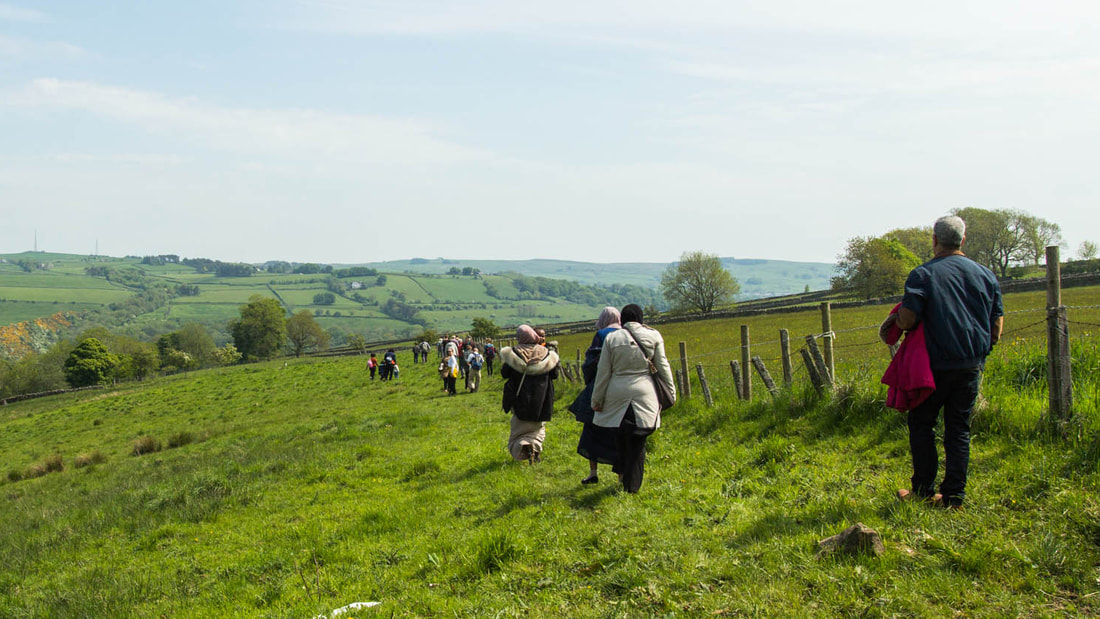
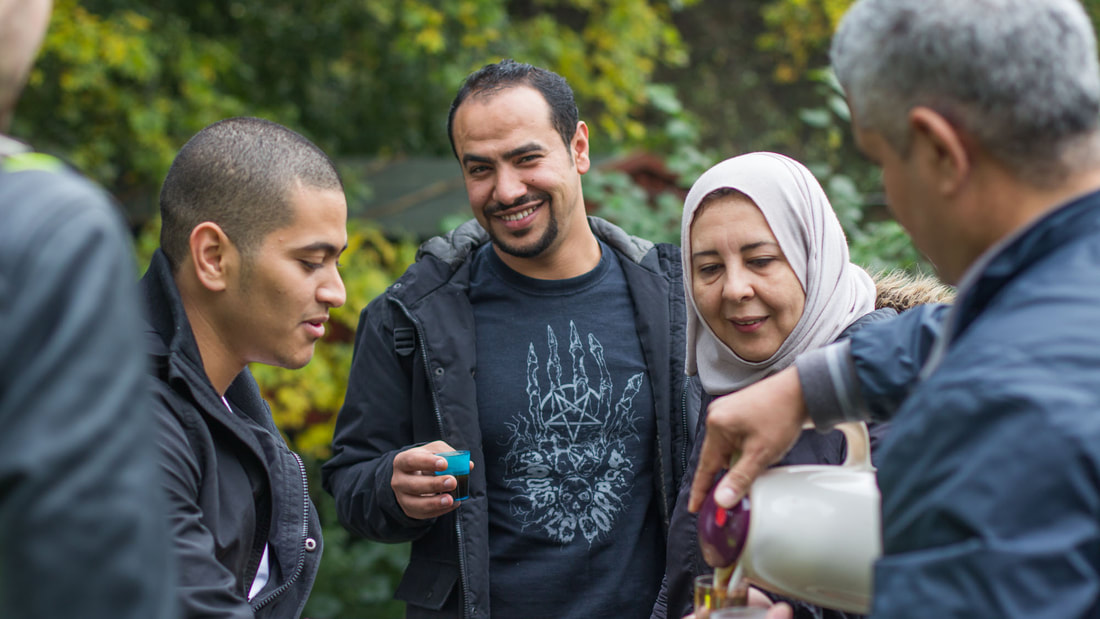
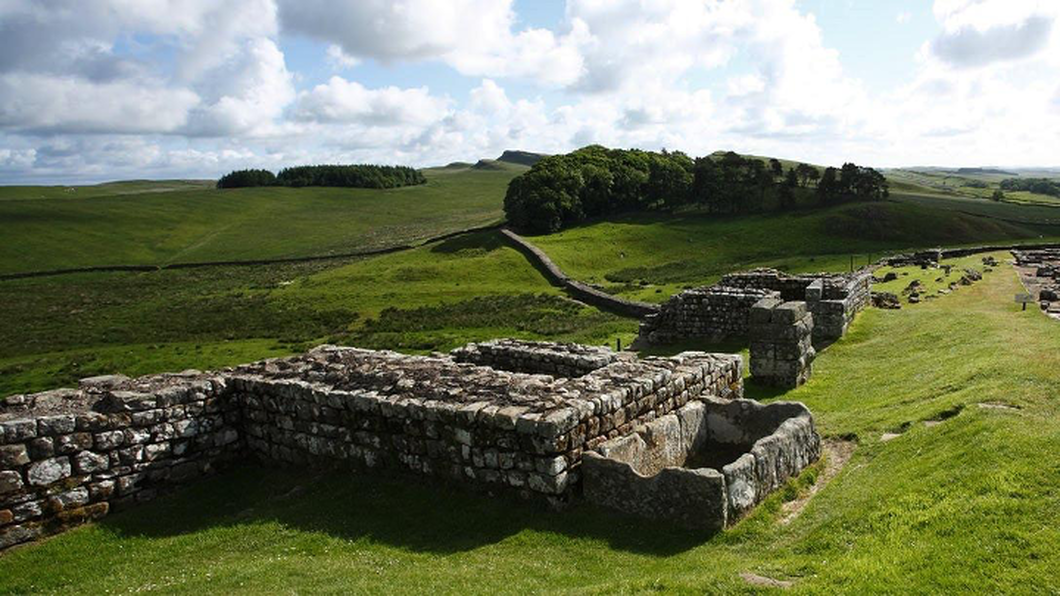
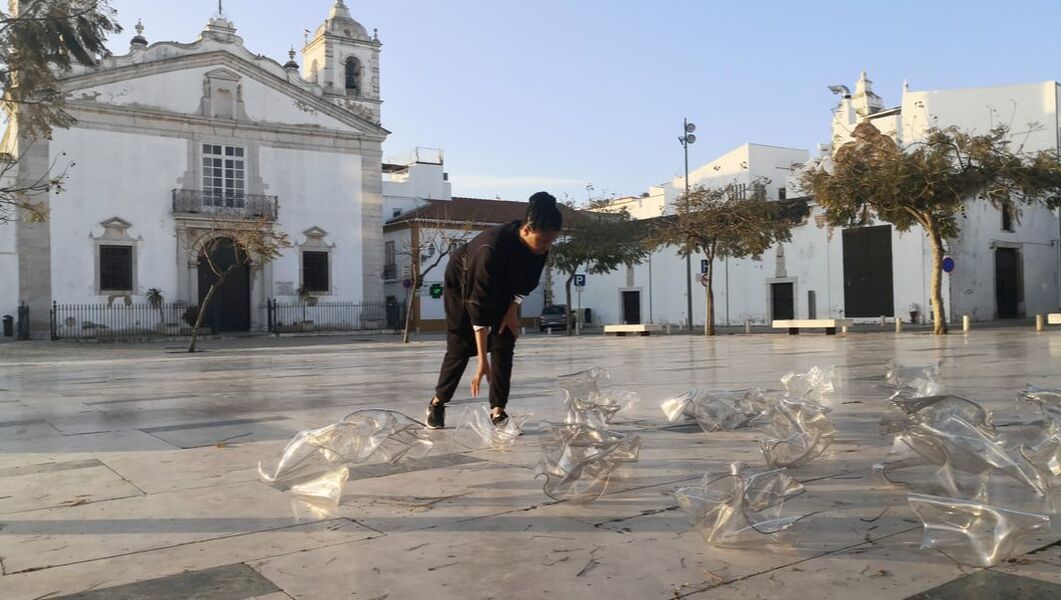
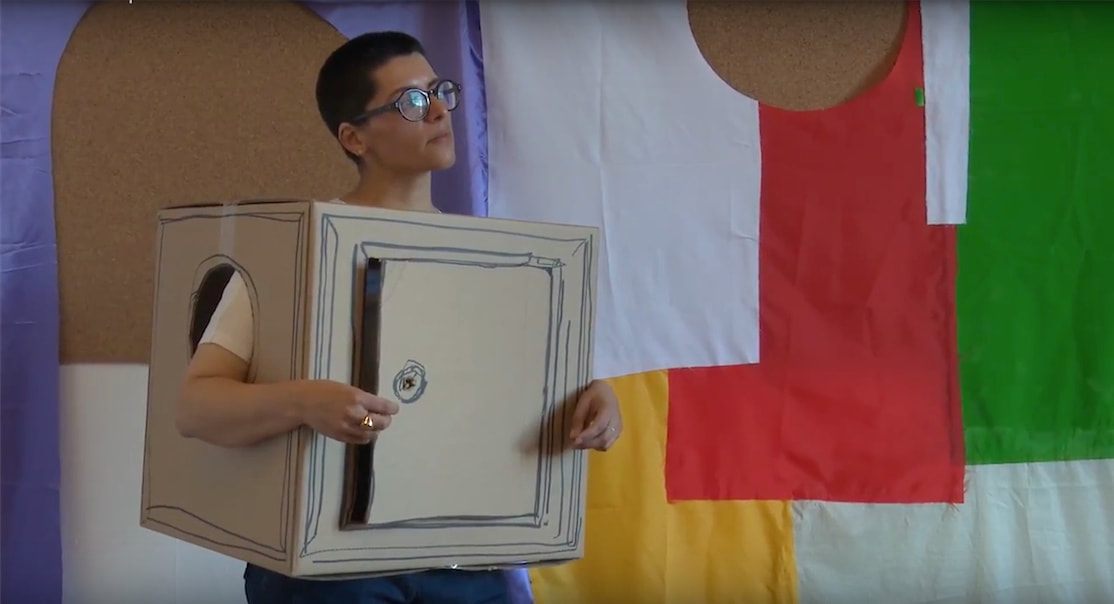
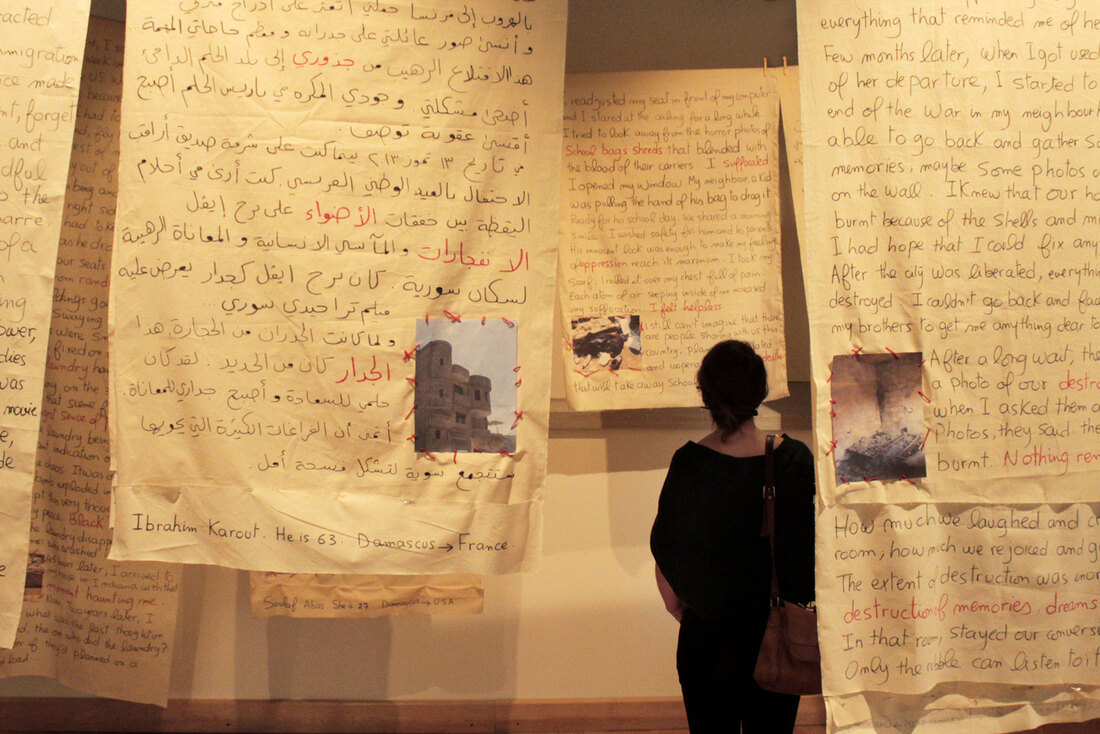
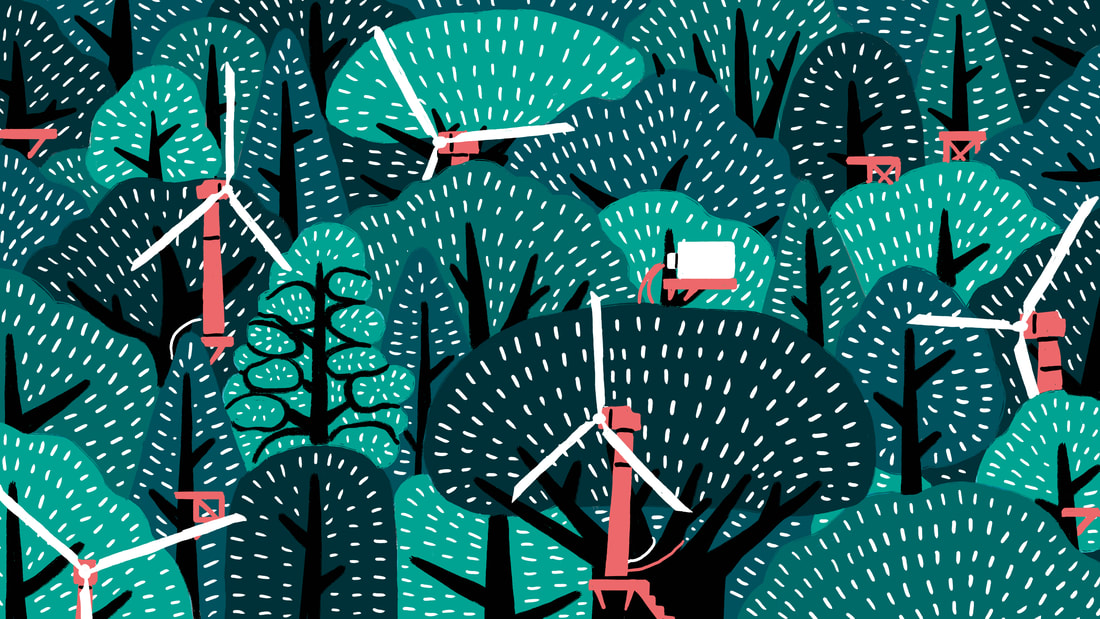
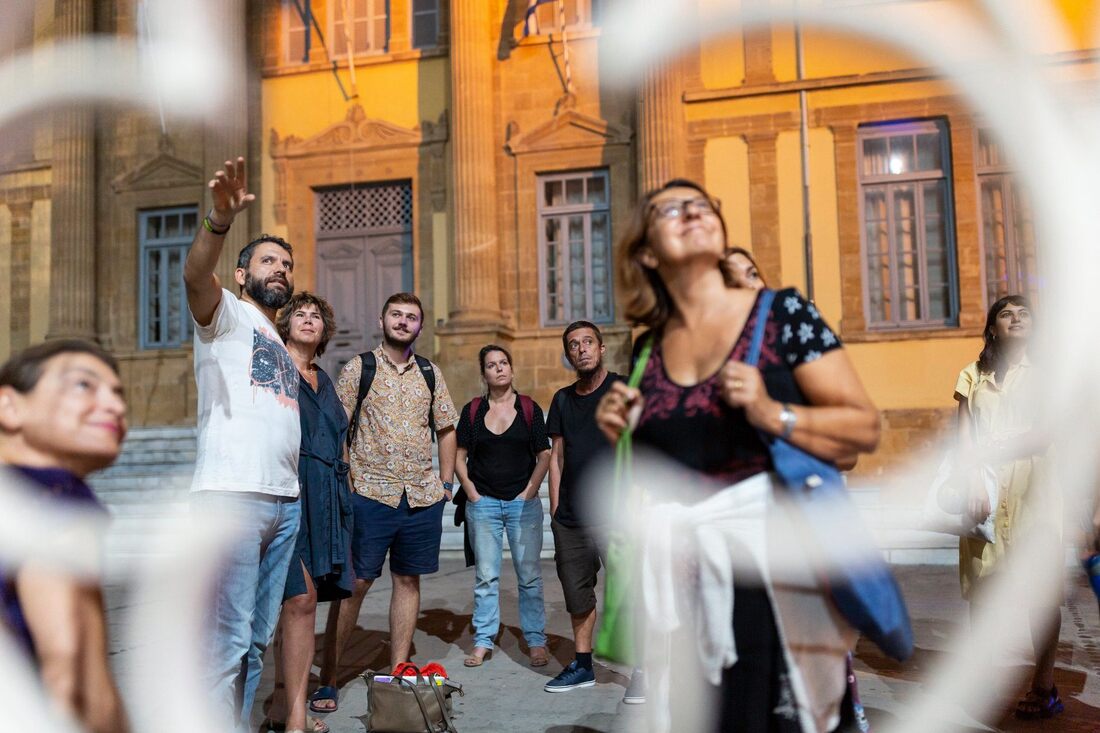

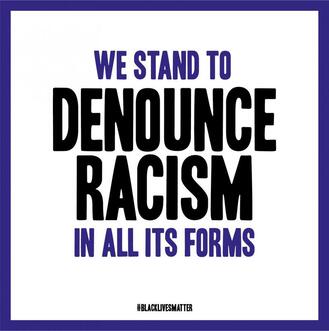
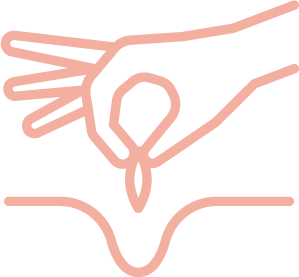
 RSS Feed
RSS Feed